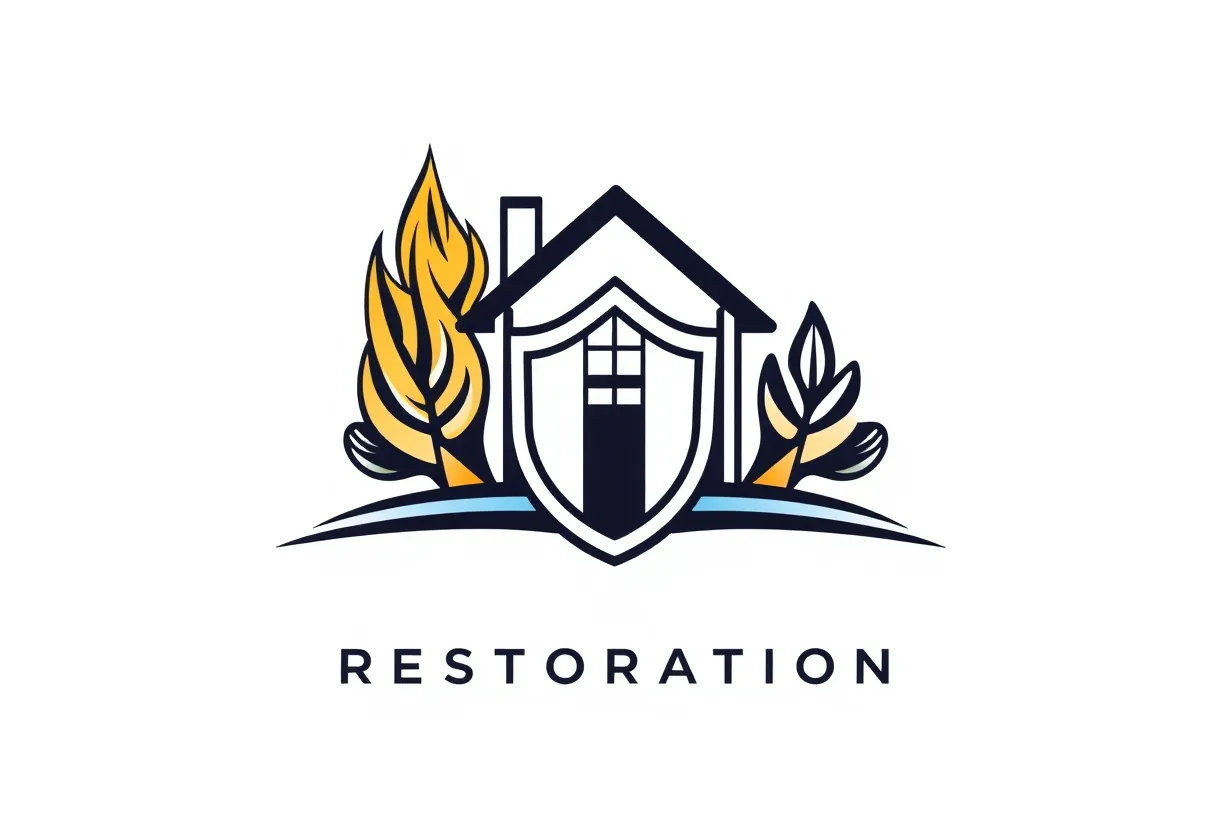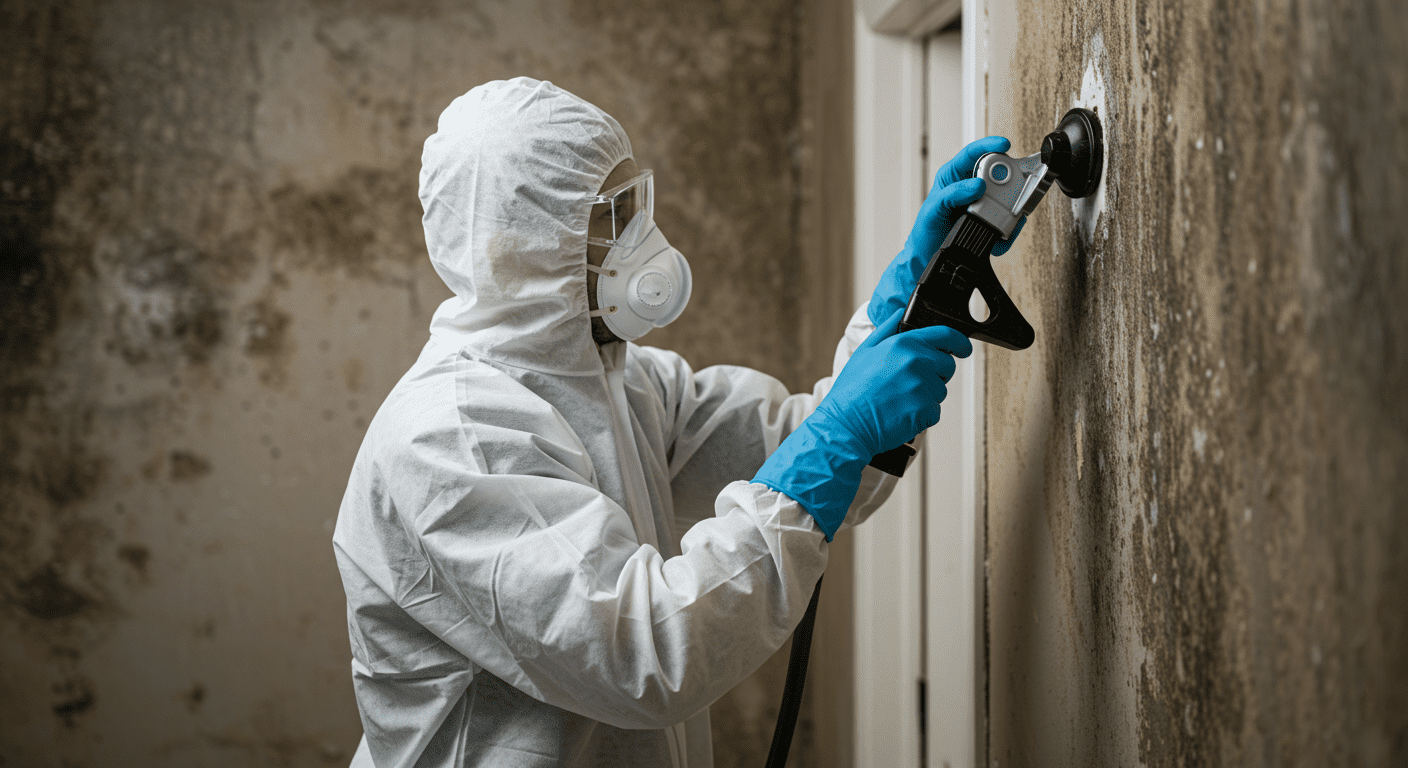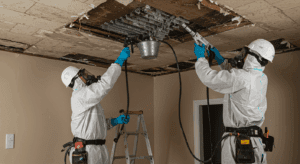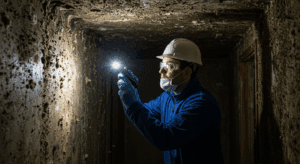Mold is a common yet serious issue that many homeowners in Trenton, NJ, face. It not only damages the structural integrity of your home but also poses significant health risks to you and your family. If you’ve discovered mold in your house, it’s crucial to act quickly and effectively. This guide will walk you through understanding mold, identifying its presence, taking immediate action, and preventing future growth.
Understanding Mold and Its Health Risks
Overview of Mold Types and Growth Conditions
Mold is a type of fungus that thrives in damp, humid environments. The most common types of household mold include Cladosporium, Penicillium, and the infamous Stachybotrys, commonly known as black mold. Mold spores are microscopic and can easily spread through the air, settling on surfaces where moisture is present. Bathrooms, basements, and areas with water damage are prime locations for mold growth.
Understanding the conditions that promote mold growth is key to prevention. Mold needs moisture, warmth, and organic material to thrive. Leaky pipes, poor ventilation, and high humidity levels in your home create the perfect environment for mold to flourish.
Common Health Effects of Mold Exposure
Exposure to mold can lead to a variety of health issues, especially for individuals with allergies, asthma, or weakened immune systems. Common symptoms include respiratory problems, skin irritation, and watery eyes. Prolonged exposure to toxic molds like black mold can cause severe health complications, including chronic sinus infections and neurological issues.
For more detailed information on the health risks of mold, check out this comprehensive guide to mold and health risks.
Identifying Mold in Your Home
Signs of Mold Presence
Mold is not always visible, making it essential to know the signs of its presence. A musty odor is often the first indicator of mold. You may also notice discoloration on walls, ceilings, or floors, ranging from black and green to white and orange. Mold can also appear as fuzzy or slimy patches on surfaces.
If you’re unsure whether what you’re seeing is mold, consider hiring a professional for a thorough inspection. Early detection can save you from costly repairs and health issues.
Areas in Your Home Prone to Mold Growth
Certain areas in your home are more susceptible to mold growth due to their high moisture levels. Bathrooms, kitchens, and basements are common hotspots. Additionally, areas affected by water damage, such as around leaky windows or under sinks, are prime locations for mold to thrive.
For a detailed guide on identifying mold in specific areas like crawl spaces, visit this resource.
Steps to Take If You Discover Mold
Immediate Actions to Contain Mold
If you discover mold in your home, the first step is to contain it to prevent further spread. Close off the affected area and avoid disturbing the mold, as this can release spores into the air. Use a dehumidifier to reduce moisture levels and improve ventilation by opening windows.
It’s also essential to wear protective gear, such as gloves and a mask, when dealing with mold. Avoid using bleach or other harsh chemicals, as they can sometimes worsen the problem.
When to Call a Professional for Mold Inspection
While small patches of mold can often be handled with DIY methods, larger infestations require professional intervention. Mold remediation experts have the tools and expertise to safely and effectively remove mold from your home. If you notice extensive mold growth or experience persistent health issues, it’s time to call in the professionals.
For expert mold removal services, consider reaching out to reliable mold remediation companies.
Preventing Future Mold Growth
Tips for Moisture Control and Ventilation
Prevention is always better than cure when it comes to mold. Start by addressing any sources of moisture in your home. Fix leaky pipes, ensure proper drainage around your property, and use a dehumidifier to maintain indoor humidity levels below 50%.
Proper ventilation is also crucial. Use exhaust fans in bathrooms and kitchens, and ensure that your home has adequate airflow. Regularly clean and inspect areas prone to moisture, such as basements and attics.
Resources for Mold Remediation Services in Trenton, NJ
If you’re looking for professional help, Trenton, NJ, has several reputable mold remediation services. These experts can provide thorough inspections, effective removal, and valuable advice on preventing future mold growth. For more tips on mold prevention and remediation, check out this guide.
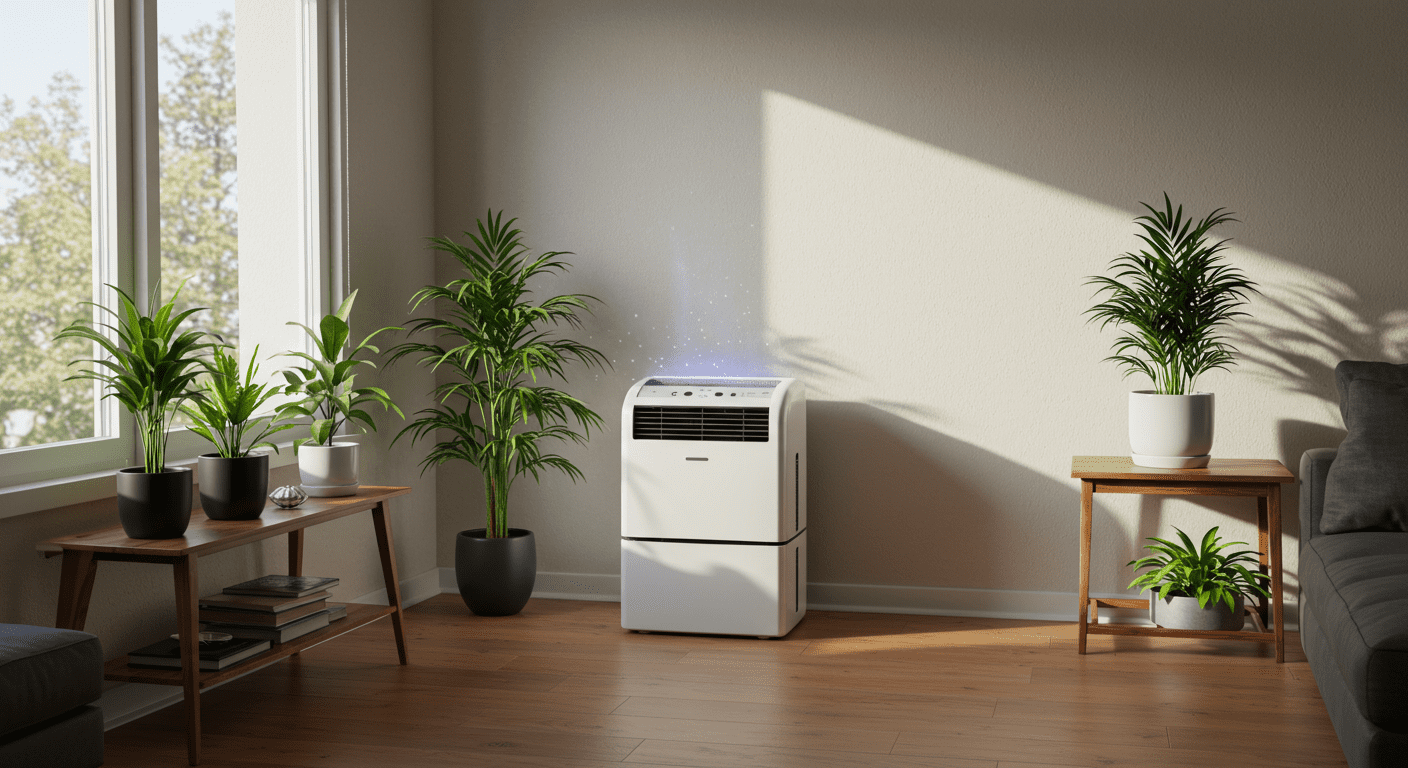
Mold is a serious issue that requires immediate attention. By understanding its risks, identifying its presence, and taking proactive steps, you can protect your home and health. Whether you’re dealing with a minor mold problem or a severe infestation, the resources and tips provided in this guide will help you navigate the process effectively. Remember, when in doubt, consult a professional to ensure your home remains a safe and healthy environment.
